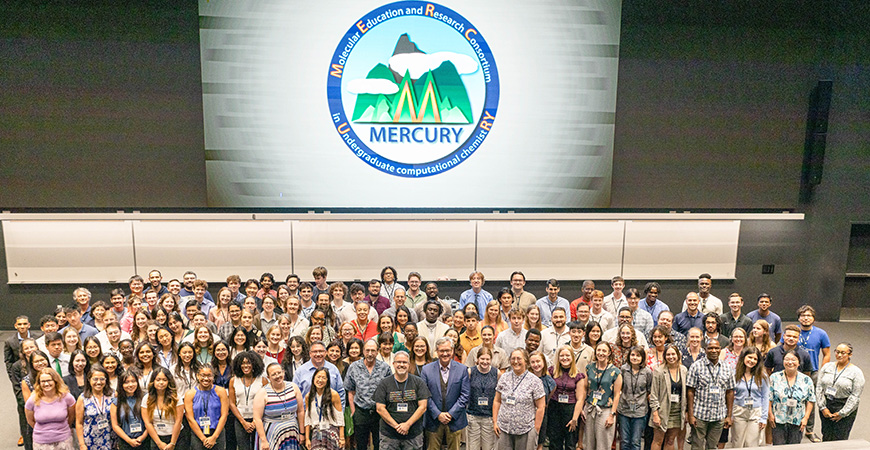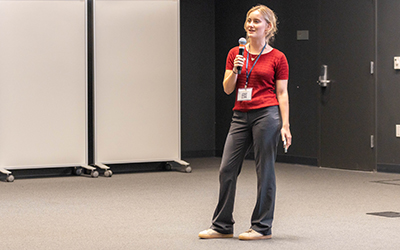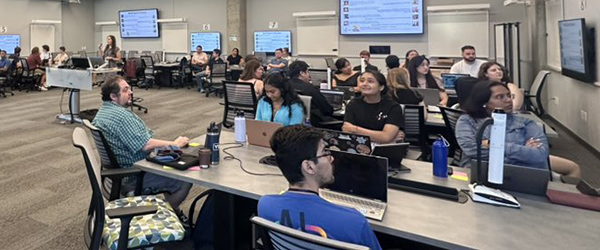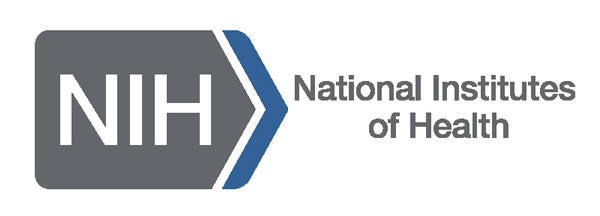
UC Merced was the site of the 22nd Molecular Education and Research Consortium in Undergraduate computational chemistRY (MERCURY) Conference held in mid-July.
“MERCURY is delighted to have the University of California, Merced, host this year’s annual meeting on the campus,” said Furman University chemistry Professor George Shields, consortium founder and director of its executive committee. “The MERCURY Consortium was founded in 2001 with the goal of establishing research collaborations among computational chemistry faculty from primarily undergraduate institutions.”
Faculty in the consortium initiate research projects for undergraduates to provide them with invaluable skills and knowledge.
“We have found that when we have diverse groups of students, we do better science and publish lots of papers,” Shields said. “The more diverse the groups are, the more excellent your work tends to be.”
Consortium members, now totaling 44, collaborate on grant proposals and share National Science Foundation-funded computational facilities.
“We write grants together to apply for computing resources, that our individual campuses wouldn’t be able to support but can be supported as a group,” said theoretical and computational chemistry Professor Ashley Ringer McDonald from California Polytechnic State University, San Luis Obispo. “We also host the MERCURY Conference every summer — a venue for undergraduate students to present their work and to learn from experts in the field.”

This year’s conference was sponsored by UC Merced’s Graduate Division, School of Natural Sciences, Department of Chemistry and Biochemistry, Center for Chemical Computation and Theory, and Cyberinfrastructure and Research Technologies; the Molecular Sciences Software Institute (MolSSI); OpenEye Scientific; and Overleaf.
“We are thrilled to have these outstanding scholars visit our campus, where we emphasize excellence and inclusivity,” Vice Provost and Dean of Graduate Studies and chemistry Professor Hrant Hratchian said. “The theoretical computational chemistry community is one of the friendliest communities I know. It's big, bold, diverse and varied in so many ways and we all get together and have a lot of fun.”
Nearly 140 people from universities across the nation, including 75 undergraduate students, attended the three-day conference. It featured six faculty or industry guest speakers, networking events, undergraduate lightning talks and poster sessions ranging from computational research into Lewy body dementia and Alzheimer’s disease to cell signaling and oscillatory behaviors.

The conference was preceded by the two-day Molecular Sciences Software Institute workshop, that is based at Virginia Tech and aims to improve software, education and training in all computational molecular sciences.
“The focus is on training students in best practices of software development and cyber infrastructure skills, so they are knowledgeable about how to write software in a way that's usable for people and maintainable in the long term,” said Ringer McDonald, who coordinated the MERCURY conference. “We had an excellent turnout for the workshop; we had a record 61 students attend.”
The importance of networking to meet new people in the computational chemistry field was emphasized throughout the week.
“The most valuable thing about attending a conference is talking to people you don’t get to see every day. They’ve gone through what you're going through now,” Hratchian said. “I've learned that we all have unique pathways, but if you develop a big enough community, somebody somewhere has figured out that one step you’re stuck on. Lean into that; talk to people and share experiences.”




